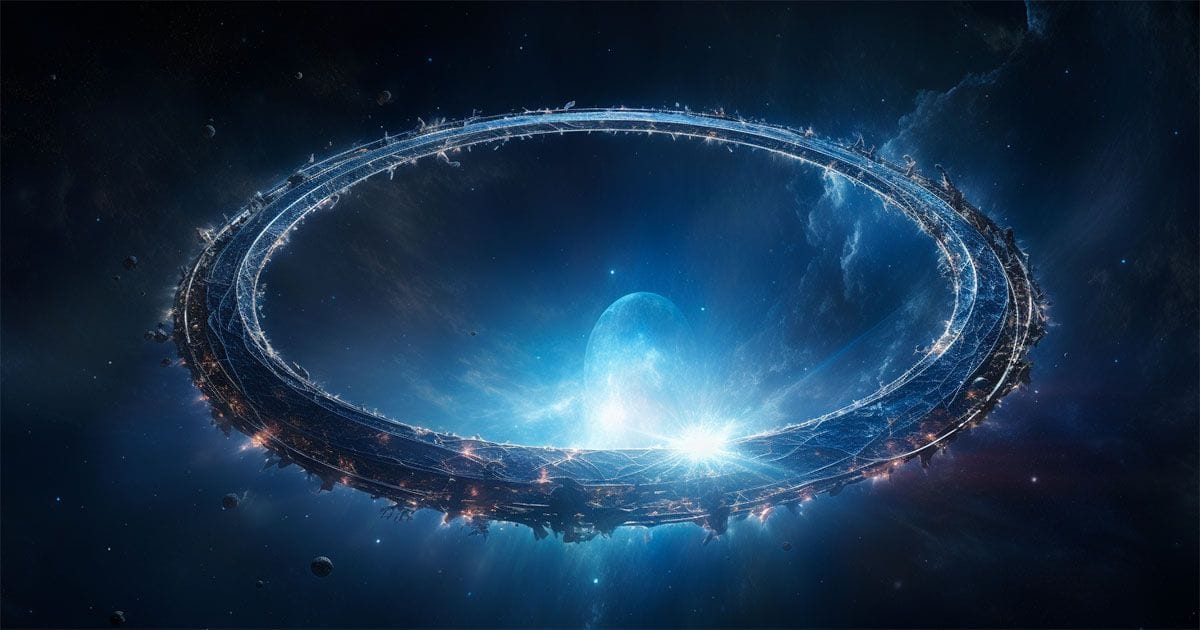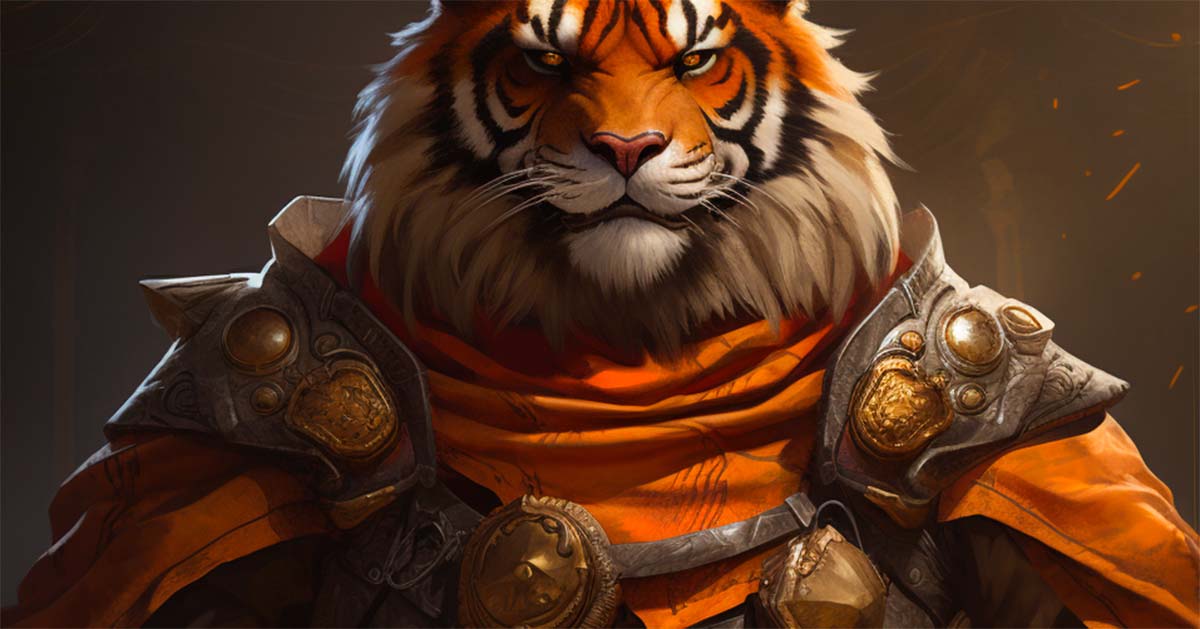Ringworld by Larry Niven: The Cultural Echoes and Enduring Impact of a Sci-Fi Classic
Dive into Larry Niven's 'Ringworld', exploring its compelling narrative, societal reflections, deep characterizations, and profound sci-fi legacy.

"Ringworld" is a landmark space opera penned by the celebrated author Larry Niven.
First published in October 1970, this Hugo, Nebula, and Locus award-winning novel is a cornerstone of hard science fiction literature.
| Title | Ringworld |
| Author | Larry Niven |
| Original Publication Date | October, 1970 |
| Sub-genres of Science Fiction | Hard SF, Adventure SF, Space Opera |
| Amazon | Buy on Amazon |
| Barnes & Noble | Buy on Barnes & Noble |
| Powell's Books | Buy on Powell's Books |
The novel revolves around four diverse and well-delineated characters: Louis Wu, a bored, 200-year-old human; Speaker-to-Animals, a belligerent Kzin; Teela Brown, a naive human woman genetically predisposed to luck; and Nessus, a neurotic member of the technologically advanced but emotionally frail Puppeteer species. Brought together by Nessus, they embark on a mysterious expedition to explore a gargantuan artificial ring structure encircling a star, which they come to call Ringworld.
Characters

| Name | Sex | Species | Summary | |
|---|---|---|---|---|
| Louis Gridley Wu | Male | Human | A bored, 200-year-old human known for his intellectual curiosity and knack for adventuring. | |
| Speaker-To-Animals | Male | Kzin | An eight-foot-tall feline-like alien from the warrior species of Kzin, serving as an ambassador. | |
| Teela Brown | Female | Human | A young and naive woman genetically predisposed to luck. | |
| Nessus | Male | Puppeteer | A member of the highly advanced but cowardly Puppeteer species who has a variety of neuroses. | |
With a scope stretching millions of miles, this Ringworld, a stunning feat of engineering, raises a myriad of questions about the civilization that could have built it. It is no less than a full-fledged world, complete with its own ecosystem, flora, fauna, and even inhabitants. As the team delves deeper into Ringworld, they encounter unforeseen adversities and gradually unveil its enigmatic history.
Niven's prowess in blending scientific concepts with imaginative storytelling is on full display in "Ringworld." The sheer vastness and complexity of the Ringworld and its civilizations are intricately detailed, showcasing Niven's meticulous world-building skills. His explorations of themes such as technology, evolution, and genetic manipulation are thought-provoking and timeless, still resonating with contemporary readers.
In essence, "Ringworld" is a grand exploration narrative packed with adventure and mystery. Its vast, cosmic scale combines with intimate character studies and cerebral concepts to form a classic that stands tall in the annals of science fiction literature.
Cultural Implications
While Larry Niven's epic "Ringworld" is a hard science fiction treasure trove, an astute reader might see its narrative as more than just an exciting interstellar odyssey. As it turns out, the book is also a nuanced reflection of the cultural and societal zeitgeist of its time, the 1970s, subtly entwined within the grandeur of its space-faring narrative.
The late 1960s and early '70s were a landmark period in human history. We had, after all, just taken our first steps on the lunar surface. This seismic event heralded a new era of fascination and optimism about space exploration. "Ringworld" captures this palpable excitement, channeling it into a grand cosmic voyage that treads the borders of the known and the unknown. The artificial world of Ringworld serves as a testament to this spirit, embodying the zenith of human imagination and technological possibilities, a theme that deeply resonated with the readers of the era.
But "Ringworld" doesn't stop at just encapsulating the technological wonderment of its time. Niven also uses his work to delve into profound societal issues that were beginning to assert their urgency in the global consciousness. One such theme touched upon is overpopulation. Through the protagonist Louis Wu, who has managed to stay alive for two centuries thanks to futuristic medical advancements, Niven prompts us to ponder the repercussions of such extended lifespans. This narrative thread plays into the broader societal concerns about the strain on planetary resources and the societal implications of a burgeoning global populace.
Niven's narrative also veers into the territory of genetic manipulation with the intriguing character of Teela Brown, a woman bred for her lucky genes. This exploration arrives just as the field of genetic engineering was making strides into the mainstream scientific discourse, sparking a slew of ethical and moral debates. Through Teela's storyline, "Ringworld" invites readers to scrutinize the promises and pitfalls of manipulating nature at a genetic level.
Despite being a beacon of hard science fiction, "Ringworld" never shies away from engaging with the broader themes that dominated its era. As such, it serves not just as a thrilling journey through the cosmos, but also as a time capsule of the cultural and societal preoccupations of the time of its creation. It's a testament to Niven's skill as a writer that these themes still resonate with us today, cementing "Ringworld" as a timeless classic in the annals of science fiction literature.
Luck in Ringworld
The concept of "luck" as an inheritable trait, explored through Teela Brown's character, indirectly raises questions about fate and destiny, elements often associated with spirituality.

Her genetic predisposition towards 'luck' raises questions about whether our lives are governed by random chance or predestined paths. However, the novel explores this more from a scientific and philosophical perspective than a spiritual one.
Similarly, the character of Nessus, a member of the technologically advanced Puppeteer species, exhibits neuroses and behaviors that hint at existential questions. His race's pursuit of safety and survival at all costs reflects a spiritual crisis, albeit examined psychologically and sociologically.
The Ringworld itself, with its godlike creators, can be seen as eliciting awe and wonder similar to spiritual experiences. It may not directly engage with spirituality, but it triggers the contemplation of higher powers and intelligent design due to its magnitude and technological sophistication required to construct it.
"Ringworld": A Tapestry of Reviews
Over the decades, Larry Niven's "Ringworld" has garnered an array of reviews that echo its complexity and depth.
In the pantheon of science fiction literature, it holds a position of high esteem, with critics and readers alike often lauding its audacity, imagination, and scientific rigor. However, like any significant work of literature, it also has had its share of criticisms.
Many reviewers are quick to admire the stunning feat of world-building that Niven accomplishes in "Ringworld." The titular Ringworld, an artificial structure encircling a star, is a testament to Niven's imaginative prowess.
Its depiction is drenched in intricate details that reveal a layered understanding of physics, engineering, and ecology. Reviewers often commend Niven's ability to intertwine hard scientific concepts with a narrative of exploration and discovery, resulting in a story that is as intellectually stimulating as it is entertaining.
Character development, while sometimes critiqued as secondary to the technological marvels of the story, has also been appreciated for its unique aspects. The diverse cast of characters, from the 200-year-old Louis Wu to the neurotic Puppeteer Nessus, provides distinct perspectives that enrich the narrative. Particularly, Teela Brown and her genetic predisposition towards luck have sparked many a debate on destiny and chance, receiving praise for originality.
However, "Ringworld" has not been immune to criticism. Some reviewers have pointed out a perceived lack of depth in the characterization, suggesting that the focus on the grandeur of Ringworld and its enigmas sometimes overshadows the development of the characters. Additionally, some aspects of the book, like the gender dynamics and the representation of alien species, have been critiqued as products of their time, reflecting the cultural biases of the era.
But these critiques have done little to diminish the general admiration for "Ringworld." Its enduring popularity is evidenced by its numerous awards, including the Hugo, Nebula, and Locus Awards.
It is a seminal work that has left an indelible mark on science fiction literature, continuing to inspire and captivate readers and reviewers alike over half a century after its initial publication.
"Ringworld": An Inspirational Touchstone for Science Fiction
In the realm of science fiction, "Ringworld" by Larry Niven has served as a beacon, illuminating paths for subsequent works and authors. Its groundbreaking narrative, rich world-building, and inventive exploration of scientific concepts have firmly established it as a touchstone in the genre.
The influence of "Ringworld" is perhaps most vividly seen in the frequency with which its central conceit—an engineered ring encircling a star, known as a ringworld—has been reprised and reimagined in later works, from Iain M. Banks' "Culture" series, where similar structures known as Orbitals appear, to the eponymous Halo in the popular video game series, the legacy of Niven's Ringworld can be seen across a diverse array of media.
In addition to the concept of a ringworld, Niven's penchant for hard science fiction has left an indelible mark on the genre. His knack for marrying rigorous scientific speculation with compelling narratives set a precedent that countless authors have followed. Niven's exploration of complex topics such as evolutionary biology, advanced physics, and genetic engineering has pushed the boundaries of what science fiction can encompass, encouraging future writers to approach these themes with equal boldness and creativity.
Moreover, "Ringworld" has provided an inspirational framework for ensemble casts embarking on grand exploratory adventures, a narrative device that many authors have adopted in various forms. The diverse and multi-species cast that Niven employed has found echoes in works ranging from the motley crews of various "Star Trek" incarnations to the interspecies dynamics in Octavia Butler's "Xenogenesis" series.

On a more meta level, "Ringworld" and its reception helped cement the place of big, idea-driven science fiction in the literary world. It demonstrated that works that tackle broad, complex scientific concepts can find both critical acclaim and a wide readership, contributing to the perception and reception of science fiction as a genre worthy of serious consideration.
Therefore, while "Ringworld" is a product of its time, it has transcended its era to become a timeless influence on the science fiction genre. Its traces can be found in the pages and pixels of countless works that came after, ensuring that "Ringworld" continues to inspire and shape the genre even half a century after its initial publication.
Who Might Enjoy "Ringworld"
"Ringworld" by Larry Niven epitomizes the hard science fiction genre. Its rich and inventive narrative, laced with complex scientific concepts, has made it a beloved classic. With its broad spectrum of themes and characters, "Ringworld" has the potential to appeal to a wide array of readers.
Fans of hard science fiction will find themselves in familiar territory with "Ringworld." Niven's approach of grounding the extraordinary elements of the story in established and theoretical scientific principles provides a solid foundation for exploring the unknown. If you have an appetite for detailed, scientifically plausible world-building and the interplay of advanced technology and evolution, then "Ringworld" would be enticing.
Readers who enjoy intricate, grand-scale world-building will also find much to appreciate. Niven's depiction of the Ringworld is both massive in its scope and meticulous in its detail. The size and complexity of the Ringworld, its variety of inhabitants and their histories provide a backdrop that rivals the depth of classics like Tolkien's Middle Earth or Herbert's Dune.
For those drawn to philosophical undertones in their stories, "Ringworld" offers a deep well of contemplation. With themes like genetic manipulation, survival, destiny, and the limits of knowledge, the narrative often veers into the realm of profound existential questioning, making for a thought-provoking reading experience.
Readers who revel in exploratory narratives and adventures into the unknown would find the journey to and through the Ringworld engaging. The novel is essentially a voyage of discovery, where the characters (and the readers along with them) gradually peel back the layers of the Ringworld's mysteries.
In sum, "Ringworld" is a multi-faceted gem that can cater to a broad range of reader preferences. Whether it's hard science fiction, intricate world-building, philosophical discourse, grand adventure, or diverse characters that you seek, "Ringworld" offers them all in a classic that has stood the test of time.

